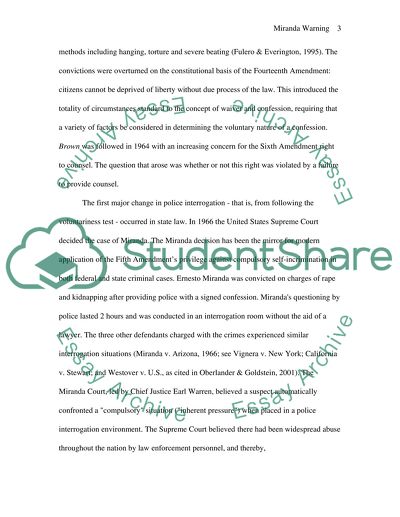Cite this document
(“Miranda Warning, How it changed Police Interrogation Term Paper”, n.d.)
Retrieved from https://studentshare.org/environmental-studies/1416269-miranda-warning-how-it-changed-police
Retrieved from https://studentshare.org/environmental-studies/1416269-miranda-warning-how-it-changed-police
(Miranda Warning, How It Changed Police Interrogation Term Paper)
https://studentshare.org/environmental-studies/1416269-miranda-warning-how-it-changed-police.
https://studentshare.org/environmental-studies/1416269-miranda-warning-how-it-changed-police.
“Miranda Warning, How It Changed Police Interrogation Term Paper”, n.d. https://studentshare.org/environmental-studies/1416269-miranda-warning-how-it-changed-police.


